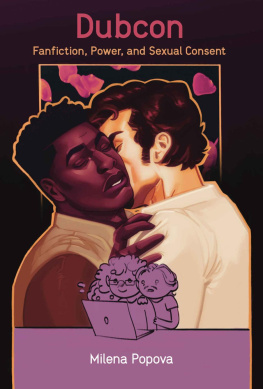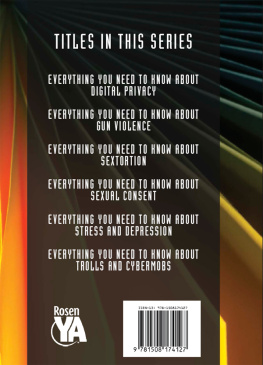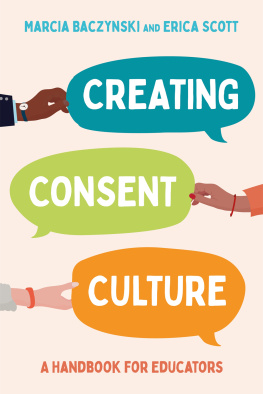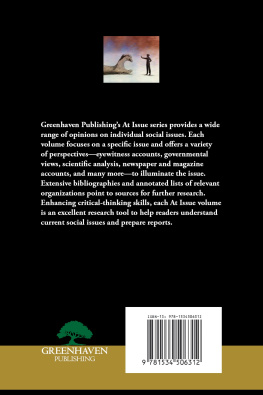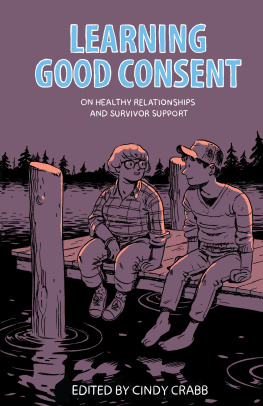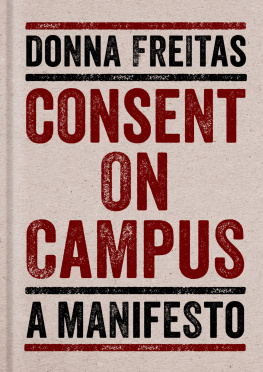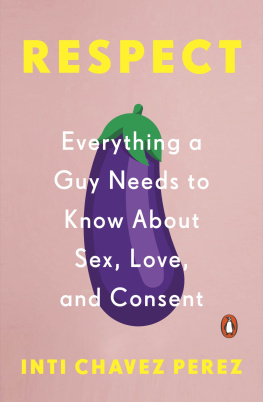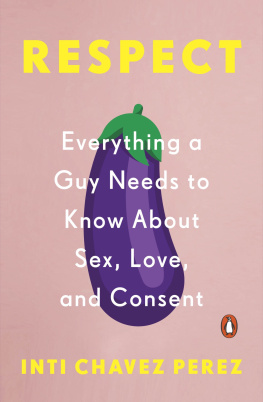Dubcon
Dubcon
Fanfiction, Power, and Sexual Consent
Milena Popova
The MIT Press
Cambridge, Massachusetts
London, England
2021 Massachusetts Institute of Technology
All rights reserved. No part of this book may be reproduced in any form by any electronic or mechanical means (including photocopying, recording, or information storage and retrieval) without permission in writing from the publisher.
The MIT Press would like to thank the anonymous peer reviewers who provided comments on drafts of this book. The generous work of academic experts is essential for establishing the authority and quality of our publications. We acknowledge with gratitude the contributions of these otherwise uncredited readers.
Library of Congress Cataloging-in-Publication Data
Names: Popova, Milena, author.
Title: Dubcon : fanfiction, power, and sexual consent / Milena Popova.
Description: Cambridge, Massachusetts : The MIT Press, [2021] | Includes bibliographical references and index.
Identifiers: LCCN 2020041672 | ISBN 9780262045964 (hardcover)
Subjects: LCSH: Fan fictionHistory and criticism. | Fan fictionSocial aspects. | Erotic literatureHistory and criticism. | Sexual consent in literature.
Classification: LCC PN3377.5.F33 P67 2021 | DDC 809.3/85dc23
LC record available at https://lccn.loc.gov/2020041672
d_r0
To my queer found family. <3
Contents
Introduction
Content note: This chapter discusses rape culture and rape apologism and includes some references to and descriptions of sexual violence.
You know what the magic word, the only thing that matters in American sexual mores today is? One thing. You can do anythingthe left will promote, and understand, and tolerate anythingas long as there is one element. Do you know what it is? Consent. If there is consent on both or all three or all four, however many are involved in the sex act, its perfectly fine, whatever it is. But if the left ever senses and smells that theres no consent in part of the equation, then here come the rape police. But consent is the magic key to the left.
Rush Limbaugh, October 2016
This is a steep price to pay for 20 minutes of action out of his 20 plus years of life. The fact that he now has to register as a sexual offender for the rest of his life forever alters where he can live, visit, work, and how he will be able to interact with people and organizations.
Dan A. Turner, June 2016
I am here today not because I want to be. I am terrified. I am here because I believe it is my civic duty to tell you what happened to me while Brett Kavanaugh and I were in high school.
Dr. Christine Blasey Ford, September 2018
The Gray Areas of Rape Culture
American talk radio host Rush Limbaugh defends US presidential candidate Donald Trump for boasting about how he can grab [women] by the pussy, casting the idea of sexual consent as a strange, outlandish, immoral invention of the left. The father of Brock Turner, a college student convicted of three counts of felony sexual assault of an unconscious woman after a campus party and sentenced to six months in prison, bemoans the harsh sentence for what he calls 20 minutes of action. A woman relives her sexual assault on national television in the hope of stopping her assailants confirmation to the United States Supreme Court. She fails. (And she is not the first to do so.)
This is rape culture. The #MeToo movement has brought the endemic nature of sexual violence into the public eye. In the United Kingdom alone, over 200 women are raped every single day. But focusing solely on these cases means we obscure experiences of sexual violence and consent violations that are less clear-cut: experiences that fall in a problematic liminal space, a gray area between yes and no, for a variety of reasons.
2017
Then something happened that was not ok
Everything wobbled.
That is unacceptable to me.
How does she voice that and feel safe.
Not knowing the rules.
The one condom two women situation.
She was confronted by her inability to ask for what she needed, to know what it was she needed and then ask for it. She is shocked at not being able to say no in the momentshe didnt trust her own sense of thats not ok. Why was she so worried about how that would look in the peer group? There was an incipient fear that she would be ostracized; become an even more peripheral participant than she was feeling.
This is an extract from a paper presented by two colleagues of mine at a conference. In it, they reflect, among other things, on how their conception of who they are as individuals has shaped their sexual experiences. Here, Davina, at her first sex party, is struggling to communicate her needs and boundaries for fear of being made to feel like she does not belong in this space.
2017
But rather: its clear in retrospect that between the ages of, like, 15 and 22, *I Was Not In A Position To Assent To Sex*.... and thats about culture & sex education & ace-invisibility & how we talk about desire. It happened bc I lacked the necessary awareness. When I think about my sexual history, such as it is, it feels like being raped by no one in particular.
In a Twitter thread, writer Alex Gabriel talks about how the erasure of asexuality from the UKs Sex and Relationships Education curriculum left Alex, as an asexual person, poorly equipped to meaningfully consent to sex for a long time. Being unable to distinguish between sexual and other types of attraction put Alex in a position where sex that was consensual on the surface nonetheless felt like a violation.
2018
He said something along the lines of, How about you hop up and take a seat? Within moments, he was kissing her. In a second, his hand was on my breast. Then he was undressing her, then he undressed himself. She remembers feeling uncomfortable at how quickly things escalated.
A young woman describes a date with comedian Aziz Ansari that seemed to follow a scriptdinner, kissing, undressingthat made her feel deeply uncomfortable. Even in a post-#MeToo environment, many doubt whether the behavior described constitutes sexual misconduct on Ansaris part. What these three accounts have in common is that the sexual experiences they describe would, by both law and common sense, be regarded as consensual. And yet, upon reflection, those who experienced them now characterize them as consent violations. If the words of Rush Limbaugh and Dan Turner and the way the Kavanaugh allegations were simply brushed away paint a picture of consent as contested, the latter three testimonies would suggest that it is more complex still than even those of us Limbaugh calls the left would imagine. And although there is still plenty of work to be done in both research and activism with regard to the arguably less complex cases (i.e., those perceived as consent violations at the time they occurred), we desperately need a better understanding of the other ones: those cases in which the ways that we are taught to think about what normal sex is, about what constitutes a date or a romantic relationship, or about the kind of sex we have and what it says about us as people make it more difficult for us to meaningfully consent to sex.
Feminist academic approaches to sexual violence and consent are diverse and multidisciplinary. Scholars from fields such as psychology, feminist legal theory, and cultural studies have made important contributions. But even within feminist academia, consent in its own right is significantly undertheorized, There is, however, another communitynot academic, not overtly activistthat has developed a word for this. Readers and writers of erotic fanfiction would call these three examples dubcon: dubious consent.

